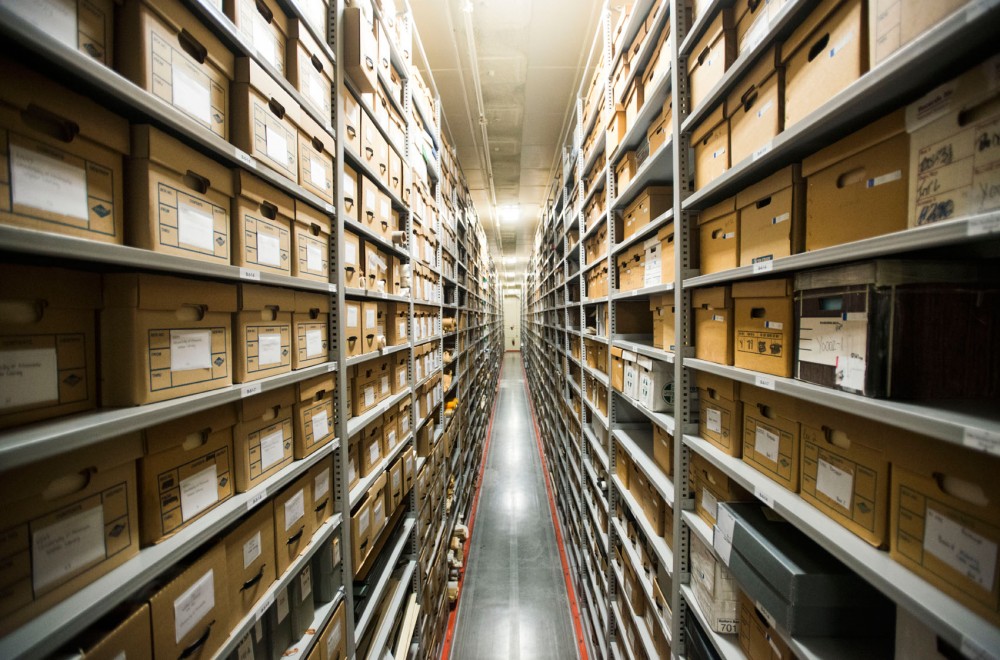In the last five years, the University of Minnesota Archives has digitized about 1 million pages of records.
But that’s only 1 percent of its total content.
Despite technology hikes, the University’s archives and special collections have continued to grow, both digitally and not.
The University Libraries’ Archives and Special Collections Department houses 16 collections of rare and unique research material. Thirteen of these are stored in an underground room the size of two football fields stacked on top of each other, located beneath the Elmer L. Andersen Library and the University Law School.
There’s a common misconception that when content comes to the archives, it’s immediately digitized and put online, said Erik Moore, head of the University Archives, which preserves items related to the University’s history.
“The majority of the material we have is in paper and always will be,” Moore said.
Although the Internet has opened doors for researchers to find information on their own, he said, material from the archives is still what they turn to after an initial Google search.
Developing research ideas online before coming to the archives can make for a more informed and specific search process, Moore said. Because of the Internet, researchers often come to the archives more prepared than before.
“It certainly changes the way we interact with people,” he said.
The research process is richer when the original items are available, said Linnea Anderson, archivist for the University’s Social Welfare History Archives.
“You’re actually looking at the raw material,” she said. “It’s your responsibility to … form your own critical interpretation of it.”
Rather than replacing traditional archives, technology is supplementing them by giving archivists new ways to work and deliver materials to researchers, Anderson said,
The Internet also helps spread the word about the archives and brings in new visitors, said Tim Johnson, director of the University’s Special Collections, Rare Books and Manuscripts.
“It’s given us a whole different kind of exposure,” he said.
University senior Brian Dailey-Arndt said he visited the archives for a sociology research methods class, but he rarely hears of students using them for projects.
More students would use the archives if more material was available electronically, he said.
“The more that the [University] could do to transfer that stuff into that format, the better off everyone would be, and the better off the actual materials would be,” Dailey-Arndt said.
Though raw material is useful to have for historical preservation, Dailey-Arndt said, he doesn’t think it’s necessary.
“If you can get it into digital format,” he said, “then I think we should do that.”
‘You have to love it’
Many of the University’s archivists stumbled into the profession and realized they had a passion for it.
As a research assistant at the University with a master’s degree in history, Moore said he never planned to go into archiving.
He “just kind of came across it,” he said, while working on a grant project for the Immigration History Research Center more than a decade ago. He’s been in the business ever since.
“You have to love it,” Anderson said, who discovered her love for digging in boxes as a student at St. Olaf College.
“You will not get rich doing this,” she said.
Anderson said she especially likes teaching classes to help others hone their information-gathering skills.
Working in a state-of-the-art building with people who are passionate about archiving keeps Johnson excited about his job, he said.
“It’s not too hard to get up in the morning,” Johnson said.
Kate Dietrick, who heads the Upper Midwest Jewish Archives, said she loves archives because of the intimate way people engage with them.
“With a book, there’s a story that’s there,” she said, “but with archives, you get to figure out the story.”


